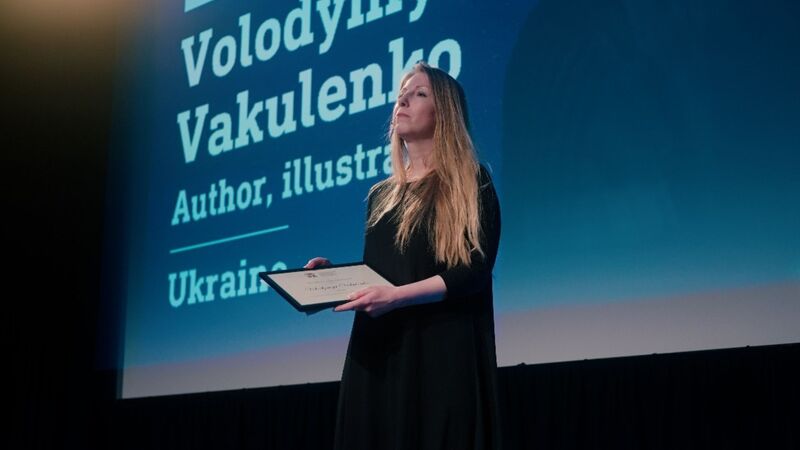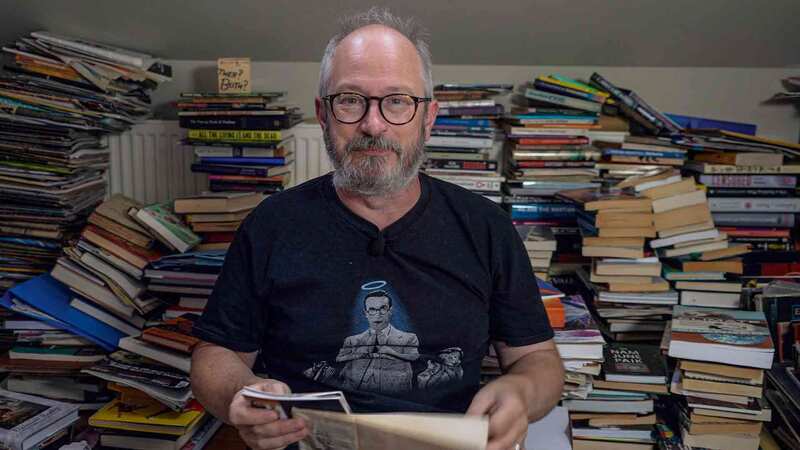Books in the Media: critics moved by posthumous work by Ukrainian writer Victoria Amelina
This week translated works dominated reviews led by Looking At Women, Looking At War: A War and Justice Diary (William Collins).
The Sunday Times’ Christina Lamb reviewed Looking At Women, Looking At War: A War and Justice Diary by her late friend, the Ukrainian writer, Victoria Amelina. Part of an organisation called Truth Hounds, Amelina pivoted from her work as a novelist and poet to interview victims and survivors of Russian attacks “in a quest for justice”. She was killed by a Russian missile before finishing the book in Kramatorsk, Ukraine. Pieced together through an unfinished manuscript, drafts and voice notes by Amelina’s writer friends Tetyana Teren, Sasha and Yaryna and her widower, Alex, Looking at Women, Looking at War is “remarkable”. “Not only does it tell the stories of some amazing women, it also chronicles Vika’s transformation from novelist and mother into war crimes investigator”, wrote Lamb. The review concluded: “This book will make you laugh, cry and marvel at the resilience of Ukrainians. Nothing I or my colleagues can report will ever be this powerful.”
Michela Wong at the Financial Times found that Amelina “was blessed with an effortlessly compelling voice, simultaneously intimate and universal”. Looking at Women, Looking at War “represents her anguished attempt to answer the question: when your country is facing an existential threat, what role can the creative artist play?” Julian Evans at the Telegraph called Amelina’s book “arresting and moving”, noting that “her text – some of which is first draft, in other places only notes – feels, by its very awkwardness, like the most potent illustration of how war not only shatters linear stories but also destroys those who are writing them”. It is an “unsparing and impossible-to-forget book”. The Bookseller’s Caroline Sanderson selected Looking at Women, Looking at War as her February Book of the Month, calling it a “the most courageous of books”.
Nobel laureate Han Kang’s new novel We Do Not Part, translated by E Yaewon and Paige Aniyah Morris, “excavates another dark episode in modern Korean history”, wrote Houman Barekat at the Sunday Times. The events of the Jeju massacre in 1948, the killing of 30,000 civilians by the Korean army and police on the island of Jeju, is here told through a “surreal ghost story set in a remote rural cabin”. The “true events at its heart are intrinsically compelling, and Han’s sensitive, suspenseful narration does them justice”, noted Barekat. Anthony Cummins at the Observer noted: “Stark as well as ethereal, chronologically discontinuous, full of nested narratives… it exhumes historical horror but also swerves into hallucinatory magic realism without breaking the plausibly autofictional frame with which it begins.” The Financial Times’ Nilanjan Roy found: “With patience and acute insight, [Han] explores both the breadth and brutality of human cruelty, and the profound capacity of our species for tenderness.” We Do Not Part is “already expected to be one of the biggest, and most harrowing, books of the year” according to Megan Walsh at the New Statesman. Kan “seeks out people who have been lost to history, those who died needlessly or violently, and gently awakens them in the reader’s imagination – ensuring that we cannot look away”.
Vincenzo Latronico’s Perfection (Fitzcarraldo), the first of the author’s novels to be translated into English, follows Anna and Tom, a couple living in Berlin, and their life across the 2010s. “Its tone sits somewhere between anthropological study and scathing Substack, the implication of inauthenticity underpinning every description of their diet, philanthropy, social scene and sex life”, noted Chris Allnutt at the Financial Times. Translated by Sophie Hughes, the novel offers a “defining picture of a generation, even if it is a frustratingly cynical one. This makes it a curious and compelling read – like staring into a mirror for the first time, unsure whether to be struck by wonder or terror”. The Sunday Times’ Johanna Thomas-Corr called Perfection a “short, sly, scathing satire” and a “devastating critique of aspirational consumerism and personal branding”. Thomas-Corr concluded: “Latronico has written one of the most brilliantly controlled works of social realism I’ve read in a while. His observations are entertaining and so damning that Perfection made me want to whoop and vomit at the same time.”
Historian Yvonnick Denoël’s Vatican Spies: From the Second World War to Pope Francis (Hurst), translated by Alan McKay, is an “even-handed study” of Vatican spies, secret agents who are “doubly hard” to identify “because so many of them have been priests”, noted Damian Thompson at the Spectator. Beginning with the pontificate of Pope Pius XII, whose papacy began in 1939, Denoël’s study ends in 2018 where “the Vatican took action to end the messy anomaly of two Chinese Catholic churches – one run by the Communist party, the other loyal to Rome and supposedly underground” by signing a “deal that allowed Beijing to nominate bishops so long as Pope Francis approved them”.
















